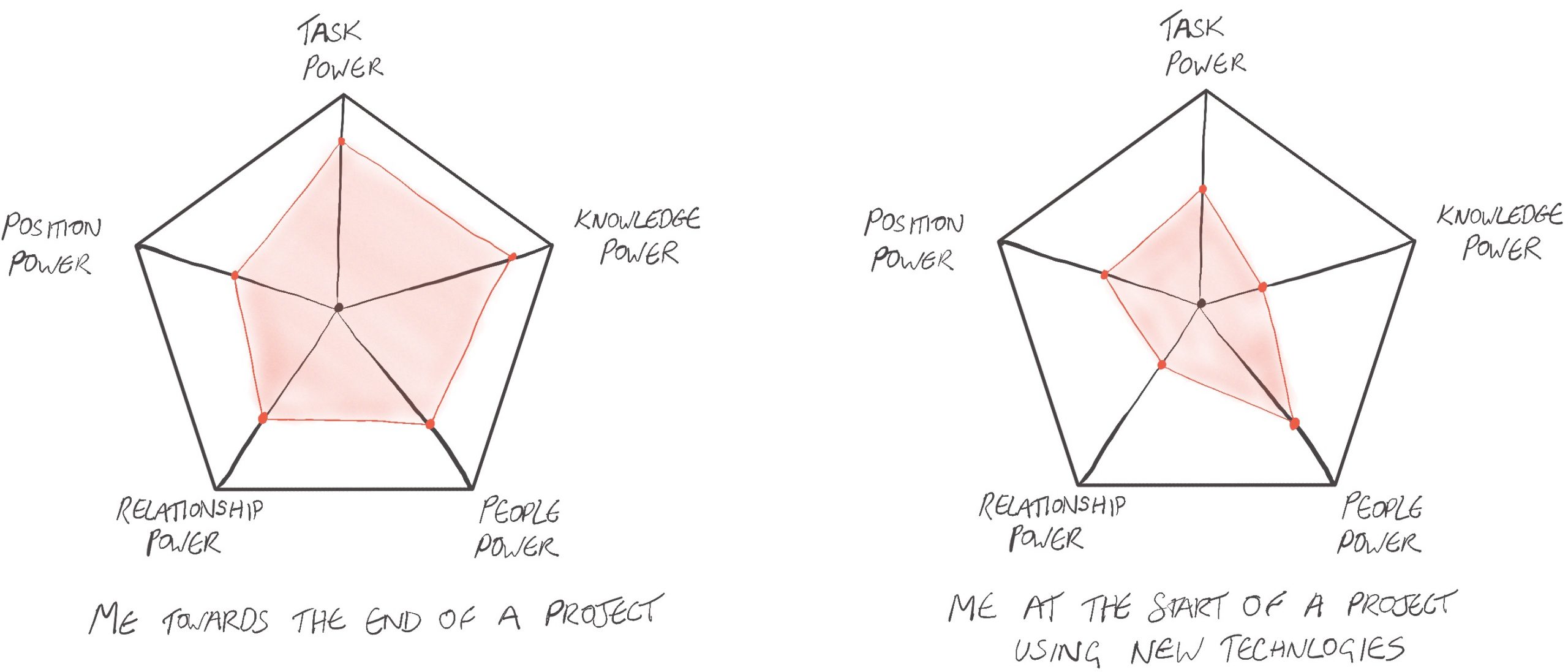I have been doing a lot of reflection recently. I want to become a great leader – to be a servant to others, to drive myself and those in my charge towards a Just Cause that we all aspire towards. In doing this I’ve been figuring out what to focus on in order to help myself and others achieve greatness in everything we do.
But if you want to be successful in leading others, you first need to be able to lead yourself. What does that even mean?
Here are some ideas I’ve read about recently which really resonate with me, and hopefully may be of use to you too.
Self Leadership
For me, this is about taking charge of your career, getting what you need in order to succeed. It’s about taking ownership and jumping to the challenges that present themselves, no matter how big or small. No one else is going to do the work for you, and you shouldn’t rely on anyone doing all the heavy lifting either.
Yeah sure this may mean taking on the responsibility and accountability, and potentially being exposed to failure if it doesn’t go to plan. Hopefully you work for a company that builds psychological safety and trust into their culture, where taking ownership and stretching yourself should be actively encouraged and not something to be fearful of. If that isn’t the case then look for opportunities to nurture that mindset within your company, maybe start with developing that trust and safety within your team.
It’s important how you ask for that support though – show others you’re enthusiastic about progressing by proactively identifying what you need. Be concise about what you need and ask for it – people will help. You’re more likely to get a positive response this way, as opposed to throwing in the towel with “someone else would be better suited for this work” or “I don’t know what to do”. This could be anything from “I need advice on diagnosing this problem” or “I need support analysing this complex customer requirement” to “I really want to take point on building the new solution, but I need your support with how to design it. Could you help?”.
Finding your Just Cause
Simon Sinek lists this as one of 5 pillars to having an Infinite Mindset. It is a future state or ideal that you are willing to sacrifice yourself for, by means of dedicating your time, energy, career or life towards pursuing. A Just Cause in itself is infinite – a never ending quest for a better future that is so profound and inspiring that you’re constantly energised and passionate about working towards it.
In this self actualisation, money and job security are no longer the motivators – you’re working for a higher cause. Having a Just Cause encourages a “Service Oriented” mindset – being in service to others. From my experience, if you’re able to prioritise your Just Cause and being in service to others, then your personal needs are also rewarded as a result. I do what I can to make an impact and help others, in the hope that the company I’m working for recognises and rewards the right behaviours that contribute to a great collaborative culture.
Motivation and self leadership are significantly easier if you have a Just Cause and your job and company aligns with it. It makes getting out of bed that much easier and turning up to work enjoyable and less like “work”.
I’m still trying to articulate my Just Cause, but before I can do that I need to discover my “why” – my origin story, why I am who I am and do what I do. All I know right now is that I love fixing problems and building solutions, working, collaborating and coaching fellow colleagues and doing what I can to help them develop. I aim to make a positive impact in everything I work on, and if I get to earn a bit of dollar whilst doing that then all the better.
Having a Worthy Rival
I don’t mean an adversary or someone you despise or detest, it could be someone you work with or a close friend. I’m on about that someone who forces us to take stock and push ourselves to do better, who excels in areas we want to develop as well. We all have one of those, whether it’s the tech lead in your team, the confident public speaker talking at events, or the person who just oozes charisma while engaging with stakeholders.
It shouldn’t be someone you’re focused on beating however as that invites a finite mindset, which drives you to focus against them and to do what you can to surpass them. It also shouldn’t be someone you can get the better of to bolster your own confidence. The effort it takes to constantly be No.1 (whatever that means) in a contest which has no end is draining and masks the real opportunity that’s available to you.
Don’t envy them… but rather embrace them. Accept humility and acknowledge that you can learn a thing or two from them. Get them to mentor you or study from afar, learn from their strengths and use them to bolster your weaknesses. Find someone who inspires you, figure out what it is they do so well, and challenge yourself to do better.
Challenge Assumed Constraints

I recently attended a coaching course led by two excellent tutors, Andy and Sean from Erskine Nash, where they introduced me to a book called “Self Leadership and the One Minute Manager”. It describes the idea of challenging assumed constraints, also known as Elephant thinking – becoming so acclimbatised to a constraint that you no longer challenge it, it limits your potential experience.
When was the last time you looked at a job, or a project, or an opportunity to broaden your horizons, and you’ve shied away from it because you fear you’d be lacking the skills or experience needed? Or the last time you worked with a client who “just didn’t get Agile”, or a colleague who didn’t understand your point of view? This is the perfect opportunity to challenge those assumed constraints, to question those limitations that you’ve defined and see what other options you have available to you.
One way of doing this is to imagine having this discussion with a close friend or family member, where they’d ask you “what are you going to do about it?”. There’s just something impactful and thought provoking when it comes from someone you have a close relationship with that causes you to really challenge your self-imposed restraints.
Embracing your Points of Power
As engineers we can be both incredibly proud and stubborn, wanting to prove to everyone and ourselves that we can solve any challenge. Whilst perseverance and determination are great qualities to have, showing vulnerability and humility and asking for support is not a weakness… it is a sign of strength.
In the “One Minute Manager” they refer to this as your “Points of Power” – different sources of power which you can draw from in a situation in order to make things happen. There are 5 different Points of Power which I’ll talk about briefly below.

Task & Knowledge Power
As engineers we’re expected to have task and knowledge power – awareness and understanding of the problems and challenges we face and how to solve them. But if you go into every situation expecting yourself to be able to solve every problem you’ll burn yourself out very quickly. To me, this is a contributor of Imposter Syndrome – that feeling you’re not good enough and sooner or later you’ll be found out. By embracing humility and leaning on the task & knowledge power of others, we can tackle any challenge.
For example, this power may refer to skills and expertise with a particular technology, working in a specific industry or with a client’s business domain. Being able to gauge your task and knowledge power against each of these allows you to understand where your strengths are, and when you need to seek the support of others.
Personal Power
Being technically excellent is a great quality for an engineer to have, but being personable and having people skills is what makes the difference between a great engineer and a great consultant. It’s not always easy building your personal power depending on where your comfort zone is – I personally can be quite introverted in some situations, and sometimes I love nothing more than sticking my earphones in and cracking on.
There are many ways you can develop Personal Power: building relatedness inside and outside your team (ice breakers for example, are a great technique when forming a new team); offering your support whenever possible (even if you’re not an expert in the task at hand); developing your active listening skills. Charisma and personality help, but you will be respected by your peers for just helping out when you can.
Relationship Power
This is an extension of utilising your personal power to build your relationships and connections. In the film “2 Guns”, whenever Denzel Washington’s character needs something, he “knows a guy”. I try to think like this too – I won’t always have all the answers, but I know enough people who have the relevant knowledge and task power to get the job done, and I know these people by building relations.
How can you extend this further? Go to conferences, watch talks, give talks, could be 5 minutes or 50 long. Each of these interactions and connections you make along the way help expand your list of contacts and sources of information you can tap into to get what you need.
Position Power
Ideally the least-preferable power, sometimes just being in the right position can aid you in obtaining the outcome you need. This could be beneficial if for example you are the tech lead, product owner or architect. In the “One Minute Manager”, they refer to this as the Power you hopefully never need to use, but is always good to know it’s there if you need it.
Your levels of Power can vary not only throughout your career, but from situation to situation. For example, you may have a lot of Knowledge power when working with a particular technology or business domain, but you may need to rely more on your Personal and Relationship Power to get what you need when working with unfamiliar systems or new clients. Knowing where you lie on these scales is valuable, and being willing to utilise these other Power points when required can be very advantageous.
Persevere… but be Patient
Personal development doesn’t happen overnight, I’m 12 years into my career and I’m barely figuring this all out myself! If you’ve read this far down then it’s great to see you’re passionate about wanting to become a great self leader, but it’s something that takes a lot of courage, determination, and time.
We’ve grown up in a world where recognition and feedback is instant, and with the likes of smartphones and social media constantly within reach we expect everything to happen with the same immediacy as instant messaging. Simon Sinek refers to this as the “Instant Gratification” model, and the downside to this mindset is that we get disheartened when change doesn’t happen at the same rate of pace.
The journey is long and sometimes it can feel like it’s difficult to be the master of your own destiny, to have the agency to effect change and motivate yourself to constantly improve. Be patient, a lot of this comes with time and experience but if you can keep momentum and focus on continuous improvement, great things will be bestowed upon you – the self leader.
Closing
The above is a very brief insight into some schools of thought I’ve been looking into recently. It’s all too easy for people to tell you to just “take ownership”, and “empower” you without any real support or direction. But hopefully some of the above gives you inspiration on how to take charge of your own career, and get what you need in order to succeed.

